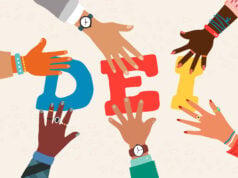
Since the November 2020 presidential election, Americans have faced numerous headwinds as they recover from the economic effects of COVID-19, including rising inflation, rising interest rates and wages that aren’t rising fast enough to match. Now, 50 percent of U.S. adults say their overall financial situation is worse than it was three years ago (i.e. since the November 2020 general election), according to a new Bankrate survey.
Those economic challenges are likely to have a major impact on 2024 presidential election votes, as 89 percent of Americans say the issue of handling the economy will be very important or somewhat important when determining their vote in the 2024 presidential election.
Coincidentally, over the past three years, President Joe Biden’s impact on the economy has been hotly debated: Around 2 in 3 (67 percent) of Republicans and 59 percent of Independents say their overall personal financial situation has gotten worse since November 2020, while only 31 percent of Democrats say the same.
No matter how they vote in 2024, Americans will keep the economy top of mind when they enter the ballot box.
The plight of the economy over the next 12 months may help to dictate whether it was wise, or not, for President Biden to trumpet the branding of ‘Bidenomics.’ The risk for President Biden is that he’ll get more blame than credit for the economy. But there’s still a long way to go before election day.— MARK HAMRICK | BANKRATE SENIOR ECONOMIC ANALYST
Bankrate’s insights on the U.S. economy’s effect and personal finances
- American financial attitudes are bleak. 50% of U.S. adults say their overall financial situation is worse than it was in November 2020. 26% say it’s about the same and 21% say it’s better.
- People are most pessimistic about their cost of living. 69% of U.S. adults say their cost of living has gotten worse since November 2020. 18% say it’s about the same and 10% say it’s gotten better.
- People feel more positive about their careers. 22% of U.S. adults say their career is now better than in 2020, while 30% say it’s about the same and 18% say it’s worse.
- Biden is taking the heat. 45% of Americans who say their financial situation has not gotten better point to President Biden. 35% say the same of Congress, 27% say the Federal Reserve and 39% say none of them. Only 36% of those whose financial situation has gotten better cite Biden as a reason why.
- The economy will play a pivotal role in the 2024 election. 89% of U.S. adults say the issue of handling the economy will be very important or somewhat important in their 2024 presidential vote. 11% say it will be not too important or not at all important.
More than 2 in 3 Americans say their cost of living has gotten worse since 2020
One in two (50 percent) U.S. adults say their overall personal financial situation has gotten worse since November 2020, according to Bankrate. Only 26 percent say their personal finances are about the same, and 21 percent say they’re better:

Source: Bankrate survey: September 28, 2023 to October 6, 2023
And after high inflation in 2022, the majority of Americans are especially pessimistic about their cost of living:
- Percentage who say their cost of living has gotten worse since 2020: 69 percent
- Percentage who say their cost of living has stayed the same since 2020: 18 percent
- Percentage who say their cost of living has gotten better since 2020: 10 percent
“With less than a year before Americans will begin casting ballots, the issue of the economy will be key,” says Bankrate Senior Economic Analyst Mark Hamrick. “Given sensitivity about the cost of living, whether inflation improves, or doesn’t, between now and the election will take on added importance. Elevated interest rates also play into this equation. There might not be much relief on that front given the Federal Reserve’s guidance on interest rates.”
People also thought other aspects of their personal finances had gotten worse since 2020:
- Short-term savings: 42 percent
- Investments, including retirement savings: 34 percent
- Careers: 18 percent
Men were also more likely to be optimistic about their personal finances than women:
- Percentage who say their overall personal financial situation is better since 2020: 24 percent of men, compared to 19 percent of women
- Percentage who say their investments are better since 2020: 21 percent of men, compared to 15 percent of women
- Percentage who say their career is better since 2020: 24 percent of men, compared to 20 percent of women
Percentage of people who think their personal financial situation has gotten worse, by generation
Bankrate’s polling also found that the tendency for people to think their personal financial situation has gotten worse since 2020 increases with age. Gen Xers and baby boomers are around equally likely to think their investments, including retirement savings; cost of living; and overall personal financial situation have gotten worse since November 2020:
Percentage who say the following have gotten “somewhat” or “much” worse compared to 3 years ago (i.e., since the November 2020 general election), by generation:
| Generation | Career | Short-term savings | Investments, including retirement savings | Cost of living | Overall personal financial situation |
|---|---|---|---|---|---|
| Source: Bankrate survey: September 28, 2023 to October 6, 2023 Note: In 2020, many Gen Zers were in the age range of being in high school and/or college. |
|||||
| Gen Zers (ages 18-26) | 17% | 25% | 17% | 46% | 32% |
| Millennials (ages 27-42) | 20% | 39% | 33% | 63% | 44% |
| Gen Xers (ages 43-58) | 24% | 50% | 38% | 77% | 59% |
| Baby boomers (ages 59-77) | 14% | 47% | 37% | 79% | 58% |
Younger Americans were more likely to say their savings have improved: 25 percent of millennials say their short-term savings have improved since 2020, compared to 15 percent of baby boomers.
“It is heartening to see that younger Americans are citing progress with their short-term savings, given that all too many in our nation live paycheck-to-paycheck,” Hamrick says. “For all who need to save (which is just about everyone), one of the attributes of the current environment is the opportunity to find some of the best returns on savings seen in many years.”
On the other hand, 24 percent of Gen Xers and 20 percent of millennials think their career has gotten worse since 2020 — the highest percentages of any generation.
“Even as the nation’s unemployment rate has remained relatively low, while hiring has moderated, fewer than 1 in 4 Americans tell us that their career has improved since President Biden was elected,” Hamrick says. “Younger Americans tended to have a more upbeat view than those more senior, but would they be sufficiently compelled to turn out come election season?”
86% of Republicans say their cost of living has gotten worse since 2020
Americans’ view on their personal financial situation is heavily split among party lines. More than twice as many Republicans believe their overall personal finance situation has gotten worse since 2020, compared to Democrats:
- Republicans: 67 percent
- Democrats: 31 percent
- Independents: 59 percent
Most significantly, 86 percent of Republicans say their cost of living has gotten worse since 2020, compared to 59 percent of Democrats. Republicans are also more likely than Democrats to say their careers, short-term savings and investments have gotten worse since 2020:
Percentage who say their personal financial situation has gotten “somewhat” or “much” worse since November 2020, by political party
| Political party | Career | Short-term savings | Investments, including retirement savings | Cost of living | Overall personal financial situation |
|---|---|---|---|---|---|
| Source: Bankrate survey: September 28, 2023 to October 6, 2023 | |||||
| Democrats | 12% | 26% | 21% | 59% | 31% |
| Republicans | 23% | 56% | 56% | 86% | 67% |
| Independents | 19% | 49% | 39% | 80% | 59% |
Continue reading
Disclaimer
The information contained in South Florida Reporter is for general information purposes only.
The South Florida Reporter assumes no responsibility for errors or omissions in the contents of the Service.
In no event shall the South Florida Reporter be liable for any special, direct, indirect, consequential, or incidental damages or any damages whatsoever, whether in an action of contract, negligence or other tort, arising out of or in connection with the use of the Service or the contents of the Service.
The Company reserves the right to make additions, deletions, or modifications to the contents of the Service at any time without prior notice.
The Company does not warrant that the Service is free of viruses or other harmful components












